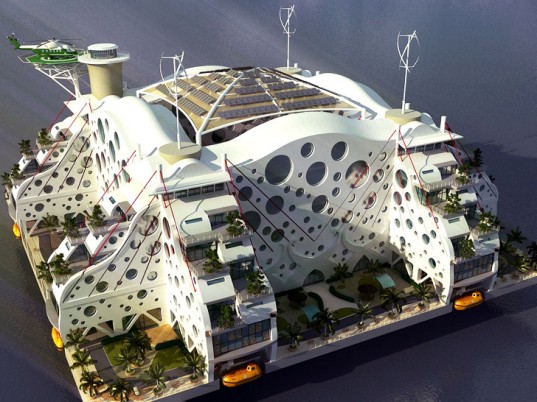Peter Thiel Invests to Create Floating Countries
In Blog Peter Thiel is known for having big ideas before everyone else – he launched Paypal, funded Facebook, and is now interested in building his very own start-up countries in the far off, open ocean. The self-made billionaire is working closely with the Seasteading Institute to create sovereign nations in international waters, free from the laws of any country.
Peter Thiel is known for having big ideas before everyone else – he launched Paypal, funded Facebook, and is now interested in building his very own start-up countries in the far off, open ocean. The self-made billionaire is working closely with the Seasteading Institute to create sovereign nations in international waters, free from the laws of any country.
Thiel spends a lot of time thinking about frontiers. “Way more than is healthy,” he admits. Not just financial frontiers, though that’s his day job: He cofounded PayPal, the online money-transfer service, and, most famously, was the angel investor whose half-million-dollar loan catapulted Facebook out of Harvard’s dormitories and into the lives of its 750 million users.
“Big ideas start as weird ideas.” That’s Patri Friedman, a former Google engineer, the grandson of the Nobel Prize-winning economist Milton Friedman, and, as of 2008, when Thiel seeded him with the same initial investment sum he’d given Mark Zuckerberg four years earlier, the world’s most prominent micro-nation entrepreneur. Friedman, a short, kinetic 35-year-old with a wife and two children, maintains an energetic online presence that ranges from blogging about libertarian theory to tweeted dispatches such as “Explored BDSM in SF w/big group of friends tonight.” Four years ago, a Clarium Capital employee came across a piece Friedman had written about an idea he called “seasteading.” Friedman was soon pitching to Thiel, a staunch libertarian himself, the big, weird idea.
A well known Libertarian, Thiel suggests these islands may be instrumental in “experimenting with new ideas for government.” One theory implements libertarian ideals such as no welfare, no minimum wage, looser building codes, and fewer weapons restrictions. Another more capitalistic approach called Appletopia, has a corporation starting the country as a business where the more popular it becomes the more valuable the real estate.
These micro-countries built on oil rig-like platforms will be moveable, diesel-powered 12,000 ton structures. Each structure may house up to 270 residents, and they are planned to link together into a massive web. Thiel plans to launch a flotilla office park off the coast of San Francisco next year and predicts full settlement of the first island in 2019. He and the Seasteading Institute aim to have 10 million floating residents by 2050.
Thiel’s ventures have always pushed boundaries. From wanting to use a currency unaffiliated with any nation for Paypal to funding DNA sequencing and commercial space travel, the uncharted and therefore, unregulated realms are his greatest interests. For those who remain pessimistic about this latest project Thiel says, “We don’t need to really worry about those people very much, because since they don’t think it’s possible they won’t take us very seriously. And they will not actually try to stop us until it’s too late.”

